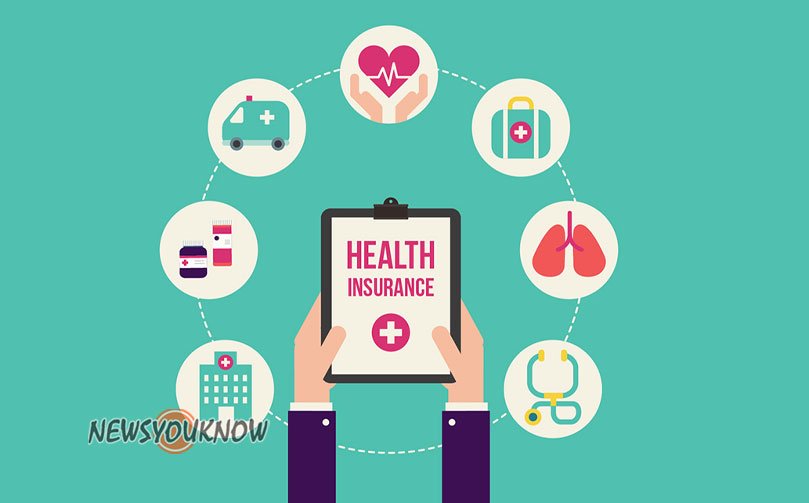Florida sees over 400,000 car accidents every year, leaving many injured drivers and passengers with steep medical bills and wondering if their health insurance covers injuries from a car crash. Understanding what expenses your health insurance policy covers after a car accident is crucial when living in a no-fault state like Florida.
This guide will explain everything you need to know about using your health insurance after a car accident in Florida. We’ll cover:
- How health insurance works with car insurance
- Florida’s no-fault insurance system
- What medical expenses health insurance covers
- What to do if your expenses exceed coverage limits
- Florida’s minimum insurance requirements
- Steps to take after an accident
- And more…
Let’s start with the basics of health insurance coverage after a crash.
How Health Insurance Works With Car Insurance
In general, your health insurance policy covers your medical costs like doctor visits, hospital bills, prescriptions and more. But it approaches paying these bills differently depending on whether the injuries happened in a car accident or not.
That’s because car accidents involve auto insurance policies as well. There are limitations on how much health insurance pays when auto insurance is also responsible for covering accident-related expenses.
So your health insurance works secondary to your car insurance after a car crash. Any medical costs get billed first to your auto policy before your health insurer pays anything.
More specifically, your car insurance pays medical expenses through:
- Liability coverage – For other driver’s injuries
- Personal injury protection (PIP) – For you/passengers’ injuries up to the PIP limit
- Uninsured/Underinsured coverage – If the other driver lacks sufficient insurance
Once those car insurance layers are maxed out, your health plan covers additional medical costs as necessary. But just like treating injuries unrelated to a car crash, your health insurance won’t pay 100% of costs.
Let’s look closer at how this works under Florida’s unique no-fault car insurance system.
Florida’s No-Fault Car Insurance System
Florida uses a no-fault insurance system for car accidents. This means both drivers’ auto insurance policies pay medical expenses for their insured driver, regardless of fault in the crash. So your PIP coverage pays your medical bills, while the other driver’s PIP covers their occupants.
The minimum PIP limit is $10,000 for medical expenses and 60% of lost wages. Many drivers carry $25,000 or even $50,000 limits for greater protection. If your medical bills exceed the PIP limit though, health insurance picks up the rest, up to the health policy’s benefit caps.
A major downside of Florida’s no-fault system, however, is lack of coverage for pain and suffering damages under PIP policies. You can only claim non-economic damages if there’s:
- A serious injury such as disability or heavy scarring
- Permanent loss of a body part
- Death
So PIP has significant gaps in accident coverage that leave many car crash victims shouldering hefty medical debts. Understanding what health insurance covers is key for Floridians to protect finances after an accident.
Next we’ll look specifically at how health insurance handles car accident medical costs.
What Medical Expenses Health Insurance Covers After a Car Accident
Health insurance policies help fill coverage gaps left by car insurance payout limits. Most health plans cover customary costs like:
Hospital and Doctor Bills
- Emergency room treatment
- Ambulance transportation
- Physician charges
- Medically necessary procedures
- X-rays, CT scans, MRIs
- Prescription medications
- Medical equipment rentals/purchases like wheelchairs or crutches
Rehabilitation Services
- Physical therapy
- Occupational therapy
- Speech therapy
- Cognitive therapy
Additional Care Services
- Skilled nursing facility care
- In-home health aides
- Service animals
- Transportation for medical appointments
But again, health insurers pay these bills as a “secondary” form of coverage after you’ve used up applicable auto insurance benefits.
And just as with routine medical care unrelated to a car crash, your health insurance won’t cover 100% of accident-related costs either. Limitations include:
Health Insurance Coverage Limits After an Accident
While better than no backup insurance, health plans do cap accident claim payouts:
Deductibles
Most health insurance requires paying a deductible before coverage kicks in. High-deductible health plans have deductibles of $1,400-$7,000 for an individual.
Coinsurance
Your health plan pays a percentage of costs after the deductible, usually 80%. You pay the remaining 20% coinsurance until hitting your out-of-pocket max.
Out-Of-Pocket Maximums
This is the highest coinsurance amount you’ll pay annually before your insurance covers 100%. Out-of-pocket maximums typically range between $2,000-$8,700 for an individual.
Benefit Limits
Most health insurers cap payouts for accident injuries overall, often around $500,000. Recovering medical costs beyond this requires proving serious harm warranting economic damages under injury law.
So health insurance assists substantially with medical bills from car crashes but cannot prevent all out-of-pocket costs. Next we’ll look at what happens when expenses exceed coverage limits.
What To Do When A Car Accident Claim Exceeds Insurance Limits
You might have heard the auto insurance term “policy limits.” This refers to the maximum payout the insurer offers for property damage and medical expenses under a policy. In Florida, minimum liability limits are:
- $10,000 per person for bodily injury
- $20,000 per accident total
- $10,000 for property damage
It’s easy for serious car accident injuries to rack up over $10k in doctor and hospital bills alone these days.
And with health insurers also capping annual accident claim payouts around $500k, it’s not uncommon for Florida car crash victims’ expenses to blow past combined auto and health insurance coverage maximums.
So what do you do when your total claim amount exceeds insurance limits?
You have two main options:
1. File a personal injury lawsuit.
If your damages exceed coverage, it often makes sense to consult a car accident attorney and pursue compensation through an injury lawsuit. This becomes viable when:
- Someone else caused the crash due to negligence like drunk driving or reckless speeding. Fault allows you to claim money for both economic and non-economic damages.
- Your financial losses are substantial enough to justify a case. Costs like lost wages and paying out-of-pocket for therapy and in-home care add up over years recovering from a serious injury.
The at-fault driver’s liability insurance can pay up to policy limits. Beyond that, the driver must pay personally. An experienced car wreck lawyer can help prove larger damages you deserve.
2. Claim under your umbrella insurance policy.
Umbrella insurance gives added liability coverage beyond existing auto and home insurance up to $1 million or more. It also covers associated medical bills if you cause a crash injuring someone else.
So if you wisely purchased umbrella coverage before an accident, it can help fill gaps between health and auto policy payout limits.
Florida Car Insurance Requirements
Part of the problem with insurance shortfalls is Florida’s low minimum liability coverage requirements. To legally drive here you need just:
- $10,000 bodily injury liability per person
- $20,000 bodily injury liability total per crash
- $10,000 property damage liability
These minimums are decades outdated and leave motorists vastly underinsured. That forces many car accident victims to claim through health insurance or file lawsuits just to stay financially afloat.
Experts strongly recommend buying extra policy limits when insuring your vehicle in Florida. Consider coverage like:
- 100/300/100 liability ($100k per person, $300k per accident, $100k property damage)
- $25,000-$50,000 PIP (personal injury protection)
- $500,000-$1 million umbrella insurance
Higher auto coverage is affordably priced given the protection it provides. Skimping on limits risks financial disaster from a serious crash.
Having ample car insurance also minimizes reliance on filing health insurance claims after an accident.
Steps To Take After a Florida Car Accident
Navigating insurance policies, accident liability, injury laws and potential lawsuits is complicated for car crash victims. It’s essential to take the right legal and financial steps after colliding with another vehicle.
Here is an overview of what to do following an accident:
- Seek medical attention – This is crucial even if you don’t feel hurt right away due to delayed pain onset. Documenting injuries through doctor records strengthens insurance claims and lawsuits later.
- Report the crash to police – File an official report documenting important accident details while fresh in your mind. Police reports determine fault and serve as key evidence.
- Notify your insurers – Inform your health insurance provider and auto insurer promptly about the accident and related injuries. Give details about fault if known and the other driver’s insurance information. Ask what documentation each company requires for claims processing.
- Don’t admit fault or accept quick payouts – What you say can negatively impact insurance claims and injury lawsuits. Wait to discuss in detail with professional legal counsel.
- Consult an attorney – Speaking with a lawyer familiar with Florida accident laws ensures you receive every benefit owed by insurance policies. They can also provide guidance on pursuing injury claims or lawsuits if warranted given damages. An initial consultation is generally free.
- Document evidence methodically – Keep meticulous records related to the crash including medical documents, communication with insurers, accident forensics, lost income proof, and so forth. Evidence is immensely helpful for insurance and lawsuit proceedings.
Following these steps reduces headaches managing health insurance claims and using coverage wisely after a car accident in Florida.
Does Health Insurance Cover Car Accidents in Florida? Key Takeaways
Dealing with car insurance and health insurance after a vehicle crash in Florida is nuanced but important for protecting your finances. Here are the key points to remember:
- Health insurance pays accident medical bills secondary to applicable auto insurance coverage
- Florida uses a no-fault insurance system with limitations on damages through required PIP policies
- Health plans cover customary accident costs like hospitalization and rehabilitation but cap annual payouts
- When insurance benefits max out, filing an injury lawsuit or claiming under umbrella coverage are options
- Florida has low minimum car insurance requirements leaving motorists underinsured
- Take key steps like getting medical treatment promptly and speaking with a lawyer
Understanding how health insurance works alongside auto coverage for car crashes is essential to handle expenses smartly while recovering from accident injuries. Optimizing your insurance protections also guards against situations where damages exceed coverage limits.













No Comment! Be the first one.